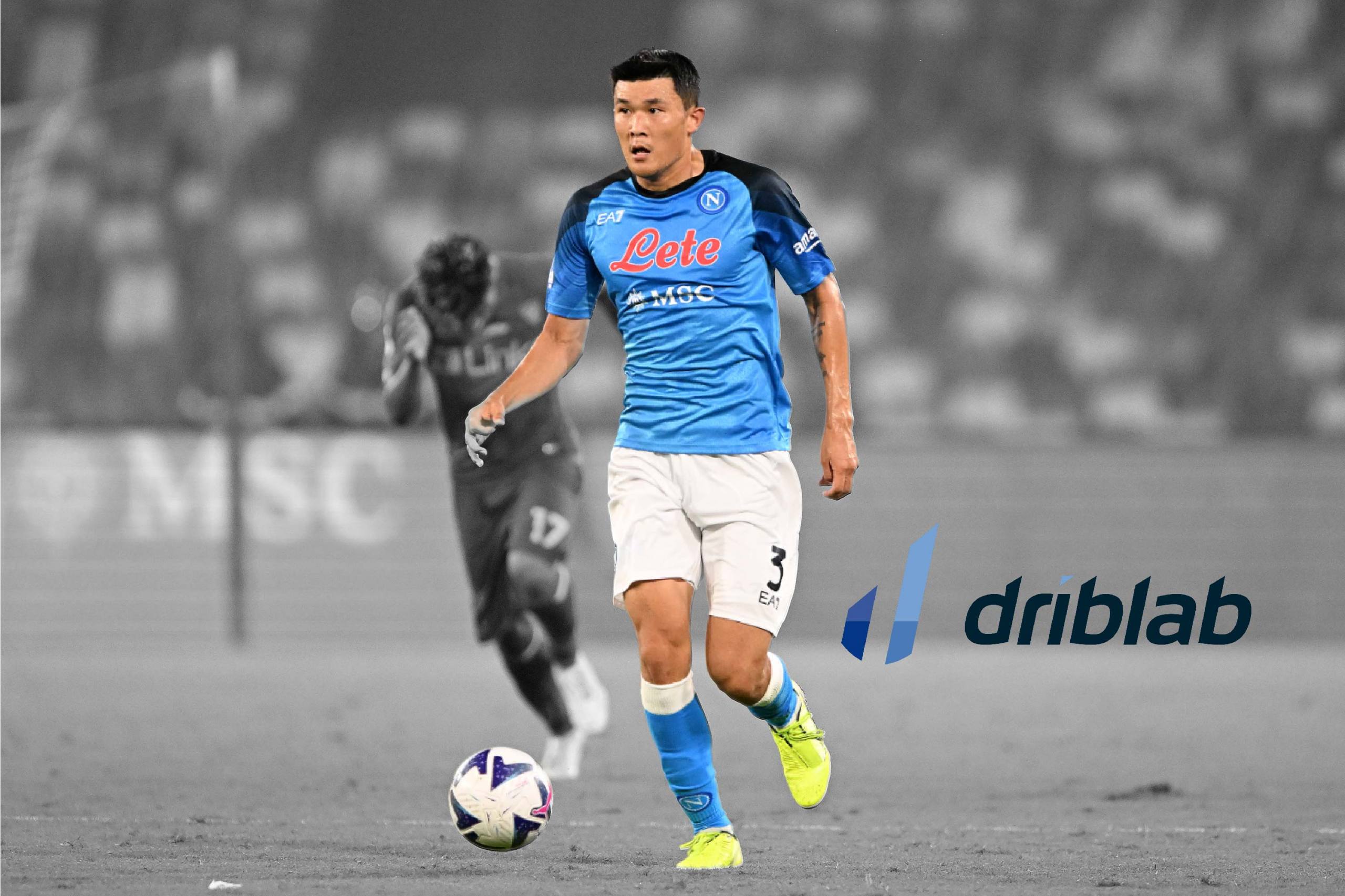In just two years, Kim Min-Jae has gone from playing in the Chinese league to being one of the best centre-backs in Europe, making him an exceptional case in terms of change of status and progression of a player’s performance in recent years. From Turkey he came to Napoli, won the league and aroused the interest of European giants, with Bayern signing the player in this transfer window.
Replicating a case like that is not easy and Napoli have seen their level of demand grow after winning the ‘Scudetto’. Knowing that with the exception of the outlay made for Konstantinos Manolas (36 million euros), Napoli have not spent large sums for a centre-back, a position that costs more to obtain a capital gain in a future sale if the initial outlay is already significant, we tried to find possible substitutes that fit with economic amounts, quality and style of play to cover the absence of the South Korean centre-back.
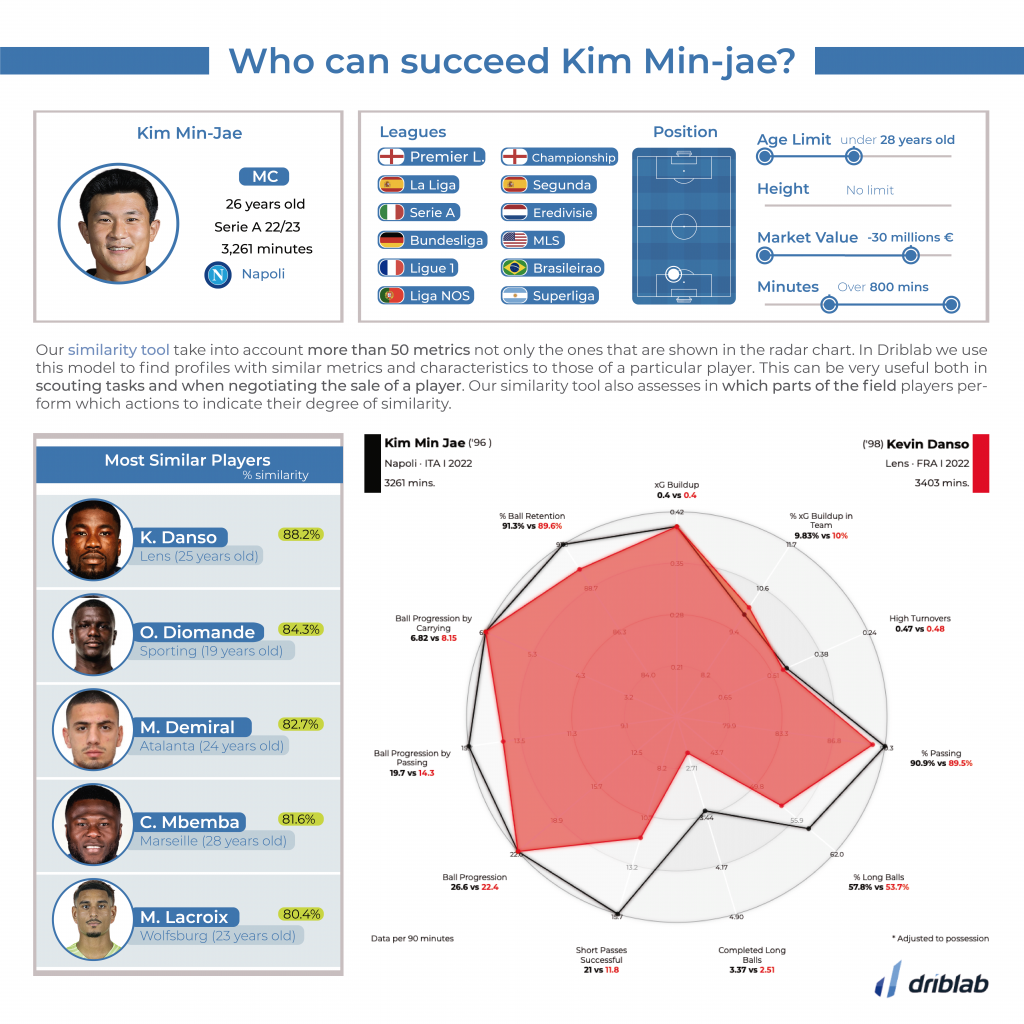
To make the comparison we wanted to use two different radars that allowed us, on the one hand, to have a global perspective of the performance and, on the other hand, to refer only to metrics related to ball possession in the centre-back position. One of the most interesting centre-backs in terms of age, performance, potential and club of origin is Kevin Danso, one of the revelation centre-backs in Ligue 1.
With many similarities to Kalidou Koulibaly, the first-choice centre-back succeeded by Kim Min-Jae, and with the potential to increase in value for a future sale to a bigger club, Danso appears to be one of the most similar prospects and with the most similar performance with the ball in his possession. Although he does not reach the South Korean’s outstanding level of tackling effectiveness, he has performed exceptionally well in a team with high possession rates and a lot of distance between the goalkeeper and the defensive line, having to defend large spaces.
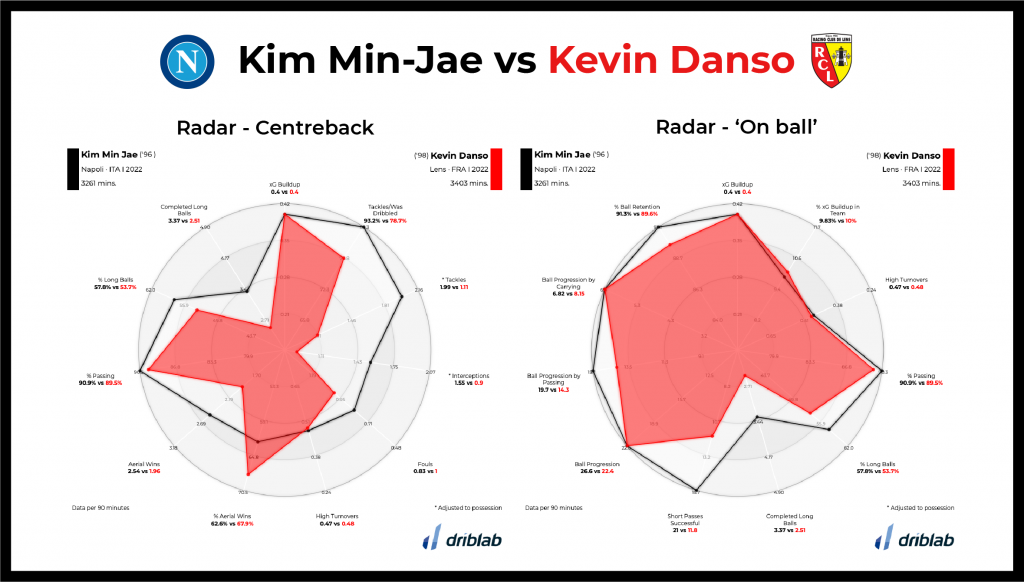
One player with a proven track record in Serie A who has a good chance of leaving this summer is Merih Demiral, for whom Atalanta are looking for a destination. This option makes more sense because of the difference in style between Luciano Spalletti and Rudi Garcia, Napoli’s new coach. The French coach is not so insistent on developing from the first passes and his teams progress in a different way with the ball. This could lead Napoli to value Demiral’s defensive prowess in one-on-one and box-to-box defending and aerial play, to the detriment of his lack of quality and daring on the ball.
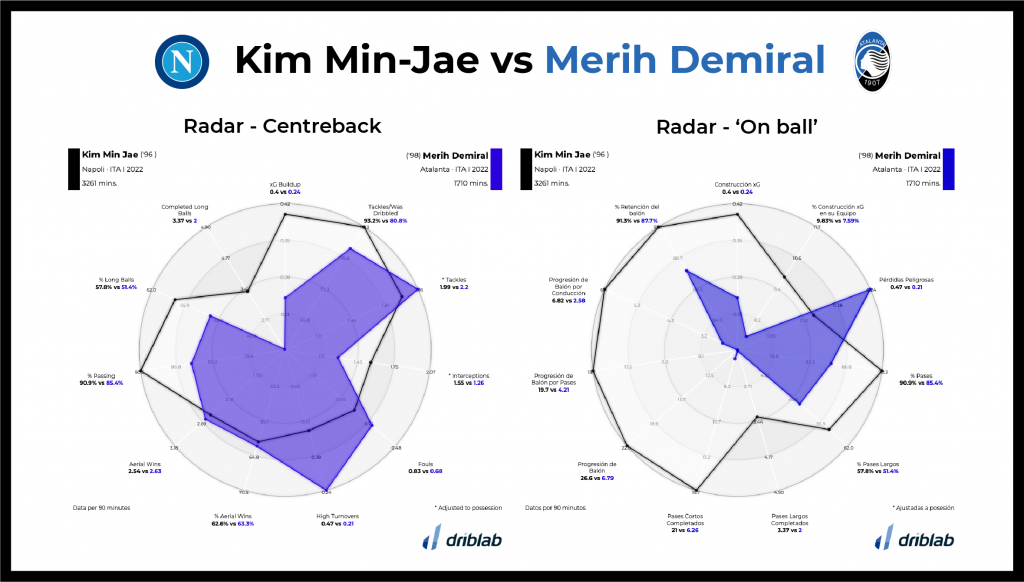
An interesting and affordable option is Maxence Lacroix, a French centre-back from Wolfsburg who has lost some of the limelight this season but has great potential to grow into a new challenge. With a good balance between wingspan, mobility, concepts and ball handling, Lacroix is still looking for a new opportunity to enhance his characteristics. His event maps show a huge degree of effectiveness in aerial duels and tackling, and he is also the cheapest option.
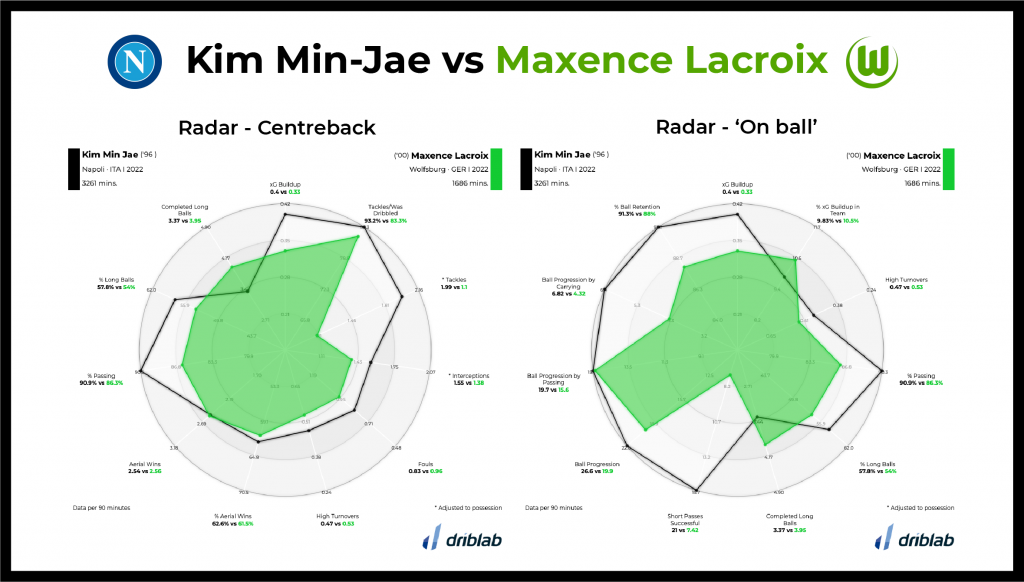
Another very interesting option is to take advantage of the best moment of a centre-back of great exuberance and maturity, that of Chancel Mbemba, a player who arrived for free at Olympique de Marseille and who has had a great season. With the ball, he is not a brilliant player, but he would bring other virtues to a backline where Rrahmani has shown he knows how to build play from the back.
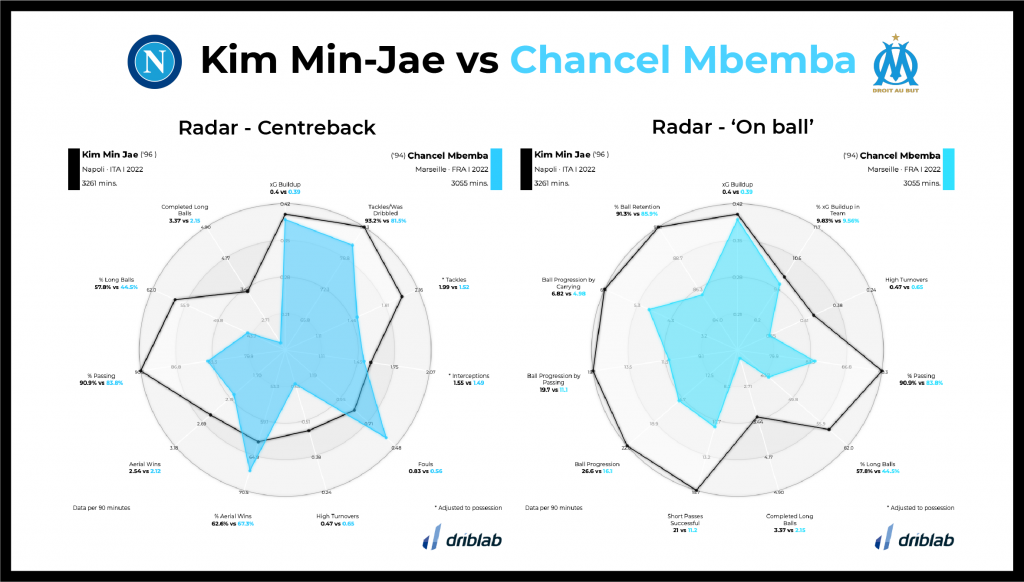
The most expensive and also the one with the greatest present and future potential is Ousmane Diomande, who is already being considered by teams with more tradition and financial capacity than Napoli. Signed for 7 million from Midtjylland, his progress and adaptation to Portugal has been incredible, between the loan at Mafra and his almost 1000 minutes at Sporting of Ruben Amorim. Perhaps it could be too expensive but it would support a fresh approach in Napoli, being able to bet on a top level centre-back and make him grow as part of a third stop according to the progression if the player decides to wait to make the jump to one of the big Premier League clubs or candidates to win the Champions League.
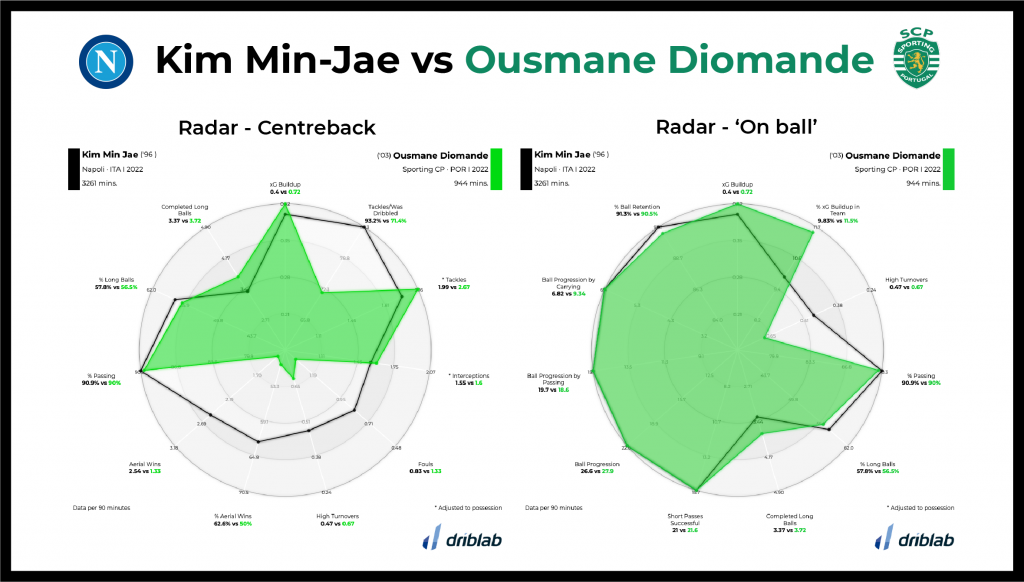
Founded in 2017 as a consultancy, Driblab has driven innovation through data in all aspects of professional football. Thanks to a transversal model, its database collects and models statistics in all directions. From converting matches and videos into bespoke data for training academies to developing cutting-edge technology, helping clubs, federations and representative agencies in talent scouting and transfer markets. Driblab’s smart data is used by clubs all over the world, with success stories such as Dinamo Zagreb, Real Betis and Girondins Bordeaux among others. Here you can find out more about how we work and what we offer.
